Table of Contents
Introduction
Choose the right medicine can be challenging in today’s vast pharmaceutical landscape. To explore expert guidance on medications, visit Mayo Clinic’s Drug Information. With countless options available in pharmacies and online, knowing how to choose the right medicine is crucial for ensuring safety and effectiveness. Making the wrong choice can lead to complications or even worsen your condition, emphasizing the need for careful selection. Understanding the active ingredients, potential side effects, and proper dosages is vital to avoid unnecessary risks.
Additionally, staying updated on reliable medical information and consulting healthcare professionals can empower you to take control of your health confidently. In this comprehensive guide, we’ll discuss the essential steps and factors you need to consider when you choose the right medicine for your health condition.
1. Understand Your Symptoms and Condition
Understanding your symptoms is the first step in choosing the right medicine. For a detailed guide on symptom analysis, visit WebMD Symptom Checker. Self-diagnosis can often lead to incorrect treatment, which might worsen your condition. Taking the time to analyze your health situation ensures that you address the problem effectively without unnecessary risks.
- Monitor your symptoms: Keep track of the onset, severity, and duration of your symptoms. Maintaining a detailed record can help healthcare professionals make accurate diagnoses.
- Consult a healthcare professional: A doctor or pharmacist can diagnose your condition accurately and recommend the most suitable medication. They might also suggest additional tests if required.
- Research your condition: Learn about your ailment through reliable sources to understand possible treatment options. However, avoid relying solely on online information as it might be generic or misleading.
For accurate diagnosis tips, refer to NIH’s Health Topics on Symptoms.

Why It Matters
Learn about common symptoms and their possible causes on Mayo Clinic’s Symptom Information.Understanding your symptoms ensures you’re treating the correct condition. Misusing medicines without proper diagnosis can lead to adverse effects or unnecessary costs. Accurate knowledge minimizes the risks of ineffective treatments and enhances recovery outcomes. Staying informed empowers you to make better healthcare decisions, ensuring safer and more effective remedies. Always consult a healthcare professional to tailor treatments to your specific needs.
2. Consult a Healthcare Professional

One of the most critical steps in choose the right medicine is consulting with a qualified healthcare professional. Consulting a healthcare professional is essential for making informed decisions about your medication. You can find reliable doctors and specialists through Zocdoc. Their expertise helps ensure that you receive appropriate and effective treatment tailored to your needs. Their guidance is essential in choose the right medicine to address your specific health concerns.
Get a prescription for serious conditions: For chronic illnesses or severe symptoms, it is crucial to avoid self-medication. Always rely on prescribed drugs to ensure safety, accuracy, and optimal treatment for your condition. A healthcare professional can guide you toward the best option based on your health history.
Ask about alternatives: If a prescribed medicine is too expensive, unavailable, or not suitable, always ask your doctor or pharmacist for alternatives. Many medications have affordable generic options or substitutes that offer similar efficacy. This way, you can ensure treatment without financial strain.
Clarify doubts: It’s essential to fully understand the usage, dosage, and potential side effects of any prescribed medication. Don’t hesitate to ask your healthcare professional about possible interactions with existing medications, supplements, or other health conditions. Clarifying any doubts ensures you are taking the medication as intended and reduces the risk of adverse effects.
By consulting a healthcare professional and following these steps, you can confidently choose the right medicine that is both safe and effective for your health needs. Schedule an online consultation with licensed medical practitioners on Practo. This will ensure that your treatment is aligned with your overall well-being.
Why It Matters
Healthcare professionals have the expertise to ensure that the chosen medicine aligns with your health profile and doesn’t interact negatively with other treatments. Their guidance significantly reduces the risk of complications, especially for complex conditions. By consulting with a qualified healthcare provider, you can be confident that you are making an informed decision and choosing the right medicine for your needs.
When healthcare professionals assess your condition, they consider factors like medical history, current treatments, and potential allergies. This personalized approach ensures that the prescribed or recommended medicine is effective and safe. They help you choose the right medicine that not only targets your symptoms but also complements other ongoing treatments.
Furthermore, healthcare professionals can offer valuable advice on proper dosage and administration. This guidance can prevent misuse or overuse of medication, which can lead to adverse effects. Their expertise is essential to ensuring that you choose the right medicine, optimizing your treatment plan, and minimizing risks associated with self-diagnosis or self-medication.
Learn why professional advice is critical for safe medication use at Cleveland Clinic’s Guide to Healthcare Advice.
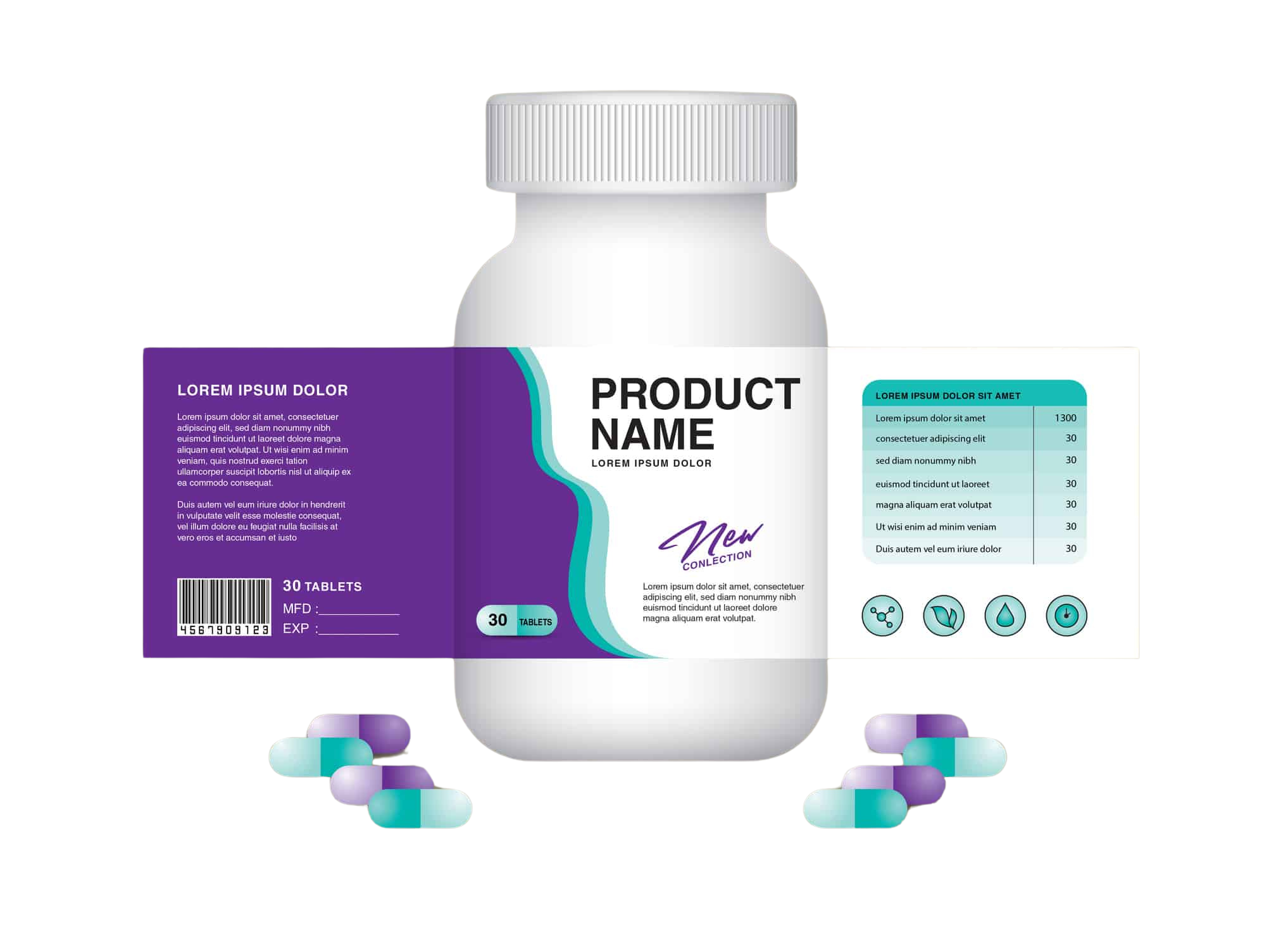
Why It Matters
Detailed knowledge of the medicine’s contents and precautions helps avoid harmful side effects and ensures safe usage. Being informed empowers you to make better decisions about your treatment. Understanding dosage instructions and potential interactions with other medications further enhances safety. Always check for reliable information and consult a healthcare professional for personalized advice.
Learn about common terms used on medicine packaging at Drugs.com Label Information.
3. Read Medicine Labels Carefully
The label on a medicine provides critical information about its composition, usage, and safety. Understanding the information on medicine labels helps in using medications safely and effectively. For detailed guidance on how to read medicine labels, visit FDA’s Guide to Medicine Labels. Carefully reading this information ensures that you understand how to use the medicine effectively while avoiding potential risks.
Check active ingredients: Ensure that the active ingredients address your specific symptoms. Avoid duplicates to prevent overdose, especially if you’re taking multiple medications.
Understand the purpose: Confirm whether the medicine is for temporary relief or long-term management. This distinction helps you set realistic expectations for its effectiveness.
Look for warnings: Pay attention to contraindications, potential allergies, and side effects listed on the label. This precaution helps you avoid adverse reactions.
4. Evaluate Over-the-Counter (OTC) vs. Prescription Medicines
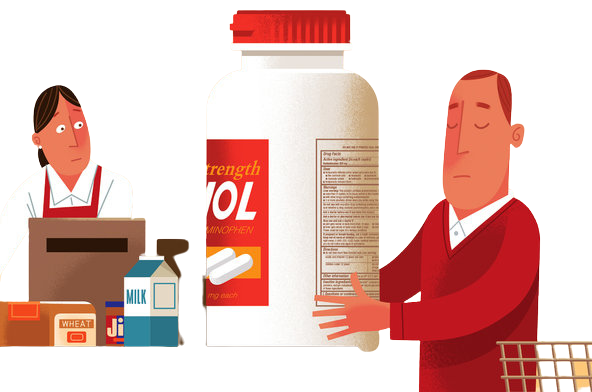
When deciding between OTC and prescription medications, it’s essential to assess the nature of your condition and the severity of your symptoms. Choosing between OTC and prescription medicines requires careful consideration of your condition. Learn about the differences between them on Mayo Clinic’s OTC vs. Prescription Medicines Guide. Understanding these categories allows you to choose the most effective option for your needs and ensures that your treatment plan aligns with your health goals.
OTC Medicines: Suitable for minor ailments such as headaches, colds, or allergies. These medications are easily accessible but should still be used with caution to prevent misuse. It’s important to ensure that you choose the right medicine for your symptoms, as some OTC drugs may not provide sufficient relief for more serious conditions.
Prescription Medicines: Necessary for conditions requiring precise treatment or monitoring. These medications are prescribed by healthcare professionals after thorough evaluation, often requiring follow-up appointments to adjust dosages or monitor progress, ensuring optimal effectiveness. Always ensure you choose the right medicine when it comes to managing chronic or complex health conditions, as incorrect medication could lead to complications.
Why It Matters
Choosing the wrong category of medicine can either delay recovery or result in unnecessary side effects. For example, using an OTC drug for a condition that requires a prescription medication may not address the root cause of your health issue. On the other hand, relying on prescription medication for minor ailments may expose you to unnecessary risks. This is why it’s crucial to choose the right medicine based on your specific health needs.
Ensuring the right choice enhances the effectiveness of your treatment plan, ultimately leading to better health outcomes. Always consult a healthcare professional to guide you in making informed decisions and to choose the right medicine tailored to your condition.
Discover the benefits and risks of OTC drugs at WebMD’s Over-the-Counter Medication Overview.
5. Consider Generic Medicines
Generic medicines are affordable alternatives to branded drugs without compromising on quality. Learn how generic drugs are tested and approved at FDA’s Generic Drugs Overview. These alternatives make healthcare more accessible without compromising quality.
Ensure equivalency: Check if the generic medicine has the same active ingredients and dosage as the branded version. Equivalency ensures similar results.
Verify quality: Purchase from reputable pharmacies or suppliers to ensure the medicine meets quality standards. Avoid unverified sources to prevent counterfeit products.
Consult a professional: Always confirm with your doctor if the generic option is suitable for your condition. Their approval ensures that the substitution won’t affect your treatment.
Compare generic vs. branded medications at Drugs.com Generic Comparison Guide.

Why It Matters
Generic medicines can make treatment more affordable without compromising efficacy, especially for long-term therapies. They provide an excellent alternative for managing healthcare costs. These medicines are rigorously tested to ensure they meet the same safety and quality standards as branded options. Discover the benefits of choosing generics for cost-effective treatment on WebMD’s Generic Drugs Page. Choosing generics allows patients to access essential treatments while staying within their budget.
6. Be Aware of Drug Interactions

Drug interactions occur when one medicine affects the performance of another. Drug interactions can lead to serious health issues. It’s essential to understand how different medicines affect each other. For detailed information, check FDA’s Drug Interaction Guide. These interactions can result in reduced efficacy, harmful side effects, or unexpected complications, making awareness crucial. When you choose the right medicine, it’s essential to consider how it might interact with other treatments you’re using. Understanding drug interactions can help you avoid any potential risks and ensure that your treatment is as effective as possible.
Inform your doctor about ongoing treatments: Share a list of all medications, supplements, and herbal remedies you’re taking. This transparency allows them to recommend compatible options, helping you to choose the right medicine without risking harmful interactions.
Use online interaction checkers: Many websites and apps can identify potential drug interactions based on your medications. These tools are helpful for initial screening and ensuring that you choose the right medicine that works harmoniously with your other treatments.
Follow professional advice: Avoid combining medications without consulting a healthcare provider. They can help you make informed decisions and adjust dosages if needed, ensuring that you choose the right medicine to minimize risks.
Why It Matters
Awareness of drug interactions is essential for your health, ensuring that you avoid complications while maximizing the benefits of your treatment. This knowledge allows you to make educated choices and prevents the risk of unexpected health issues from arising due to incorrect medication combinations.
When you choose the right medicine, you safeguard your health and increase the likelihood of achieving optimal results from your treatments. By being mindful of potential interactions, you can make better decisions about your healthcare. Remember, when you choose the right medicine, it is crucial to consider how each medication works in conjunction with the others, reducing the risk of harmful effects.
This proactive approach helps you manage your condition more effectively and confidently. Ultimately, when you choose the right medicine, you are taking the necessary steps to ensure your health is well-managed, minimizing complications and promoting better treatment outcomes.

Why It Matters
Children and elderly patients are more vulnerable to side effects and improper dosing, making extra caution necessary. Proper measures safeguard their health and recovery.
7. Take Special Precautions for Children and Elderly Patients
Medicines affect children and elderly individuals differently due to variations in metabolism, body weight, and health conditions. Tailoring treatments for these age groups is essential for safety and efficacy.
Use age-appropriate formulations: Ensure the dosage and form of medicine (e.g., liquid, chewable) are suitable for the patient. Age-specific adjustments reduce the risk of side effects.
Seek pediatric or geriatric advice: Specialized guidance is essential to prevent under dosing or overdosing. These experts understand the unique requirements of vulnerable age groups.
Monitor closely: Observe for unusual reactions and report them immediately. Regular monitoring ensures timely intervention if issues arise.
8. Verify Authenticity When Buying Online
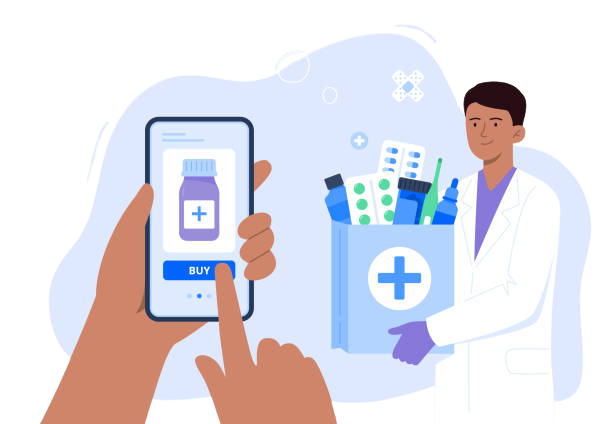
With the rise of online pharmacies, purchasing medicines online has become more convenient than ever. However, it is essential to ensure that you’re buying from legitimate sources to avoid counterfeit products that could harm your health.
Choose certified pharmacies: Look for accreditation or certifications from health authorities like the FDA or equivalent bodies. These certifications are clear indicators of the pharmacy’s legitimacy, ensuring you receive safe and effective medications.
Avoid counterfeit products: Counterfeit drugs can have severe health risks. Be sure to check reviews from other customers and verify the authenticity of the packaging upon delivery. This will help you ensure that you’re getting genuine products that are safe to use.
Confirm prescriptions: Always upload a valid prescription for regulated medicines. This helps maintain compliance with legal and safety standards and ensures that the medicines you receive are appropriate for your condition.
Choose the right medicine: When buying online, take the time to confirm that you’re selecting the right medication for your specific health needs. Cross-check the dosage and brand to ensure they align with what your doctor prescribed.
By following these steps, you can confidently choose the right medicine, ensuring your health and safety while enjoying the convenience of online pharmacy shopping. Always remember to verify the credibility of the pharmacy to protect yourself from potential risks.
Why It Matters
Counterfeit or low-quality medicines can pose significant health risks and fail to treat your condition effectively. These substandard products may contain harmful substances or incorrect dosages, which could worsen your health. Verifying authenticity is crucial to ensure that you’re not only safe but also receiving the right medication for your condition. Taking steps to choose the right medicine ensures that you avoid the dangers of counterfeit products and their potential side effects.
When purchasing medicines, especially online, it’s vital to check the legitimacy of the source. Reputable pharmacies and healthcare providers will guarantee the authenticity of the products they sell, ensuring that you choose the right medicine that meets the highest standards of quality. This reduces the likelihood of encountering ineffective treatments and ensures optimal health outcomes.
Learn how to recognize legitimate online pharmacies at PharmacyChecker’s Guide.
9. Follow the Prescribed Dosage and Duration
Using medicine correctly is just as important as choosing the right one. Adhering to the prescribed dosage and duration is critical for the effectiveness of the medication. For detailed guidelines on proper dosage, visit WebMD’s Medication Dosage Instructions.
Avoid skipping doses: Missing doses can reduce effectiveness or lead to drug resistance, especially in cases like antibiotic treatments.
Do not self-adjust dosages: Increasing or decreasing doses without professional advice can cause harm or compromise treatment.
Complete the course: Especially for antibiotics, finishing the prescribed course prevents relapse or resistance, ensuring full recovery.
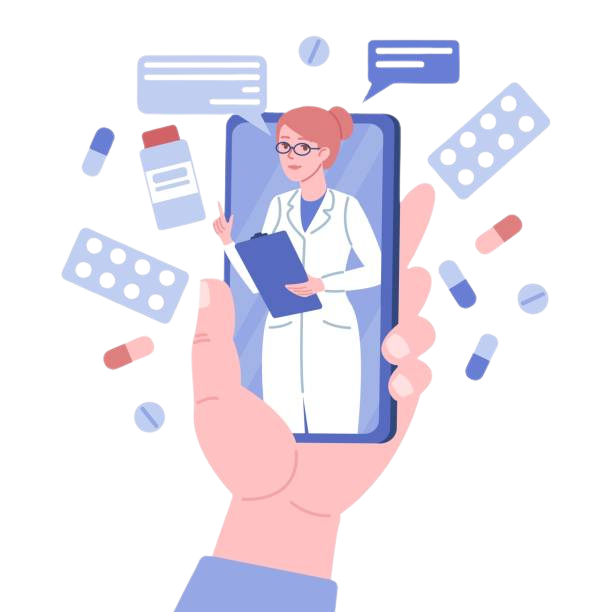
Why It Matters
Proper adherence ensures optimal results and minimizes the risk of side effects or treatment failure. Following professional advice helps maintain the effectiveness of your treatment.
10. Stay Informed About Side Effects
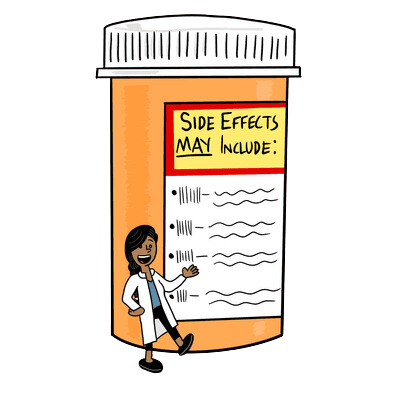
Every medicine has potential side effects, ranging from mild to severe. Knowing what to expect helps you manage them effectively and seek timely assistance if necessary. Being well-informed about the side effects of the medication you’ve chosen helps you take proactive steps to avoid or address any concerns. It’s essential to choose the right medicine to minimize the risk of severe reactions and ensure that you are on the right path to recovery.
Read patient leaflets: Detailed information about side effects is often included in the packaging. Familiarizing yourself with this helps in early detection of issues and ensures you are well-prepared to choose the right medicine.
Know when to seek help: For severe or unexpected reactions, consult your doctor immediately to ensure prompt intervention. This ensures that you make the best decisions and choose the right medicine that suits your health needs.
Keep emergency contacts handy: Have access to your healthcare provider’s number for urgent situations, especially when starting a new medication. This precaution enables you to confidently choose the right medicine for your condition and take immediate action when necessary.
Check out Drugs.com Side Effects Directory for a detailed list of side effects for various medications.
Why It Matters
Preparedness for side effects ensures your safety and allows timely intervention if needed. Being informed minimizes anxiety and helps you address concerns confidently. By ensuring you choose the right medicine, you can avoid unnecessary complications and improve your overall treatment experience.
Conclusion
Choose the Right Medicine for Optimal Health

Choose the right medicine is a vital part of maintaining good health. For further guidance on safe medication practices, check out Mayo Clinic’s Comprehensive Health Resources. It requires a thoughtful approach that considers your specific medical condition, symptoms, and professional advice from qualified healthcare providers.
By following the steps outlined above—understanding your condition, consulting with a healthcare professional, reading medication labels carefully, and being mindful of potential side effects—you can take control of your health journey with confidence. Emphasizing safety, efficacy, and appropriateness in your treatment decisions is vital to achieving the best outcomes.
In addition, maintaining a healthy lifestyle, staying informed about your prescribed medicines, and adhering to recommended dosages contribute significantly to your overall well-being. Always seek professional advice when in doubt and remember that prevention is often the best medicine. With the right knowledge and support, you can make informed choices that pave the way to better health and a higher quality of life.
For more health and wellness tips, visit Health Medicine Mall, your trusted source for medical insights and quality healthcare products.

